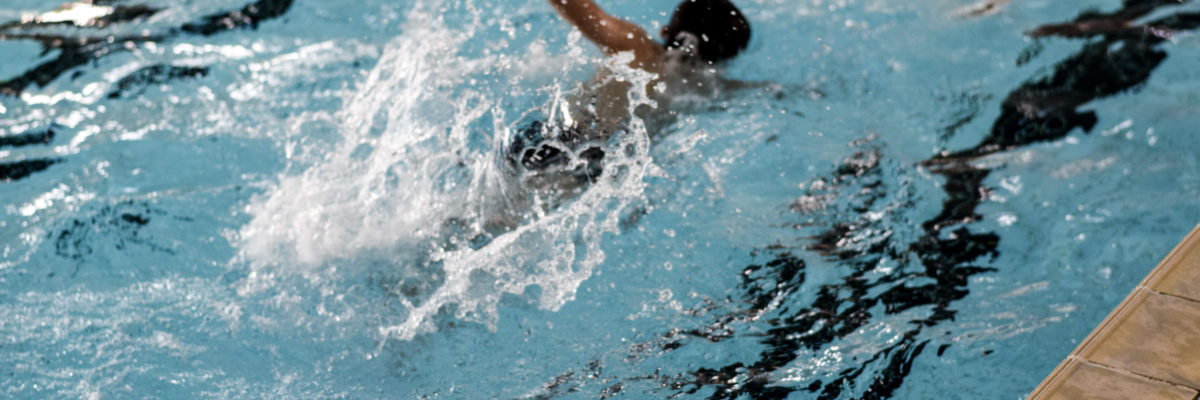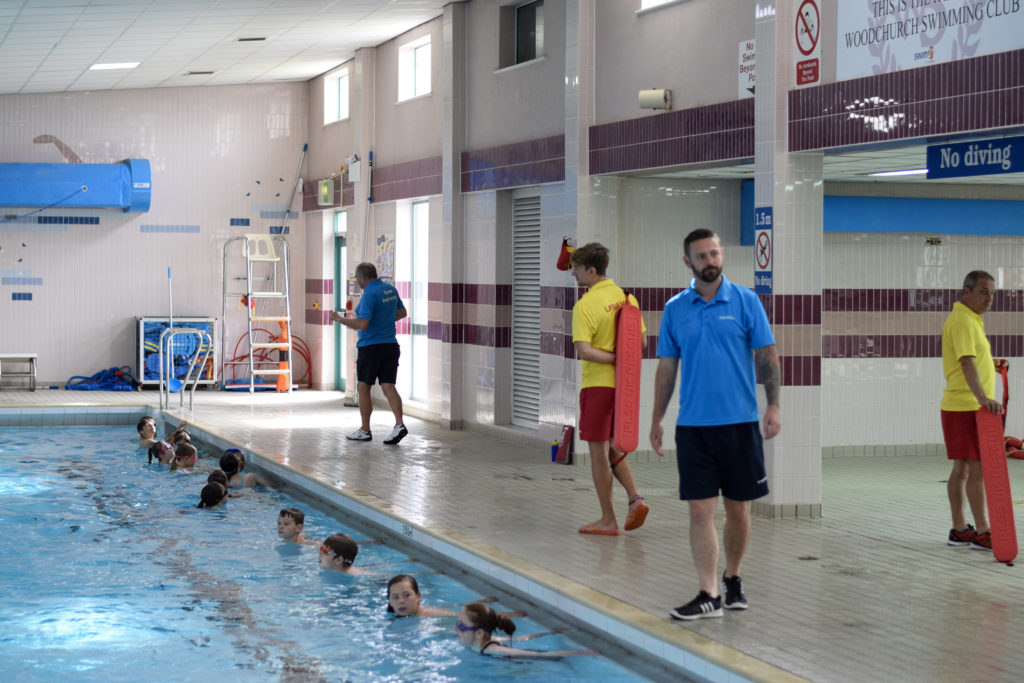9am-5pm 5 days a week support via phone and email
Access to latest health and safety guidance
One point of contact for all swimming enquiries. No need to contact the pool, instructors or transport provider separately
Reward system for all pupils achieving the National Curriculum standards
Termly data reports showing progress against the National Curriculum requirements.
New National Curriculum ‘Dry’ Activity cards to support schools in supporting awareness of water safety before and during lessons.
Booking of all instructors & lifeguards, pool hire and transport arrangements
One termly invoice for all swimming related costs
A Quality Assurance Officer will visit pools on a regular basis to monitor standards of teaching and support consistency.
Access to top up and additional swimming sessions
Inclusive training for school Governors on their role in supporting School Swimming
One2One qualified instruction available for pupils with specific needs

For schools who follow the National Curriculum (NC), Physical Education is a statutory subject, and within this, swimming must be provided for all children so that they can meet the statutory requirements by the end of Key Stage 2. When parents request a place for their child at a school, they agree to the ‘terms and conditions’ presented by the school and to follow the curriculum set by the school. Even where a school does not follow the NC, if they present a curriculum stating that swimming will be undertaken, that is what parents are agreeing to accept. Having entered into this agreement, it is not acceptable to attempt to withdraw a pupil from curriculum lessons.
Whilst many schools provide information about the school curriculum on their websites or in prospectuses and newsletters, Edsential encourages and will support with advice on providing more formal PE policies, setting out exactly what parents should expect. Without such written and communicated documentation the school will find it more difficult to defend their position. The section “How much swimming” on page 7 of this document discusses the value of the school swimming experience, beyond simply reaching or passing a given ability level.
It is not difficult to explain why a parent is unable to withdraw a child from swimming lessons on a purely educational and social development basis, but the discussion does become more difficult when the school is asking for financial contributions towards the cost of the sessions. Where this is used as an argument, schools need to stress that the contribution is towards the transport element of the session, and not the swimming lesson itself. If the situation does arise from known financial problems (e.g. areas of high unemployment, recent loss of employment by a member of the family, more than one sibling requiring additional finance etc..), the school should consider supporting the additional costs until such time that the contribution can be resumed.
This is a sensitive discussion and should be handled discreetly by the school. Objections of this type are not frequent. Parental complaints of any sort in relation to school swimming should be tackled as soon as possible to avoid other parents becoming aware of concerns and swelling the feeling of discontent. Pupils not able to swim, due to temporary medical conditions or forgetting kit, should always be taken to the pool, not left back at school, and given alternative tasks linked to the swimming lesson. They can for example:
The decision as to whether pupils should wear swimming goggles during a school swimming lesson, should come about through a risk assessment of the lesson, taking into account the length of the lesson, the ability of the pupils, the task to be undertaken, etc. The outcome of this process should be agreed between the swimming teaching staff and the school, and will take into account any school policy. Most Edsential school swimming lessons are 25 minutes (water time), and given this it is generally not deemed to be necessary for pupils to wear goggles.
Concerns arise for the swimming teacher when:
Wearing of goggles may be appropriate when:
Dependent on the outcomes of the various scenarios outlined above, ultimately the decision regarding the wearing of goggles rests with the swimming teacher in discussion with the school. A parent should be made aware of this.
Schools must publish data relating to the swimming attainment of the current year 6. It must be online no later than 4th April 2018. Follow the link below for full details of what the National Curriculum requirements are and the questions schools will need to answer. Click here for more
There are no guidelines on the number of hours of swimming per year, although national research shows that it takes between 20 and 25 hours to teach a child to swim competently. For a school this may be split across multiple years.
All schools must provide swimming instruction either in key stage 1 or key stage 2. In particular, pupils should be taught to: swim competently, confidently and proficiently over a distance of at least 25 metres; use a range of strokes effectively; perform safe self-rescue in different water-based situations.



I spent the past 12 years working within primary school PE, Sport and Physical Activity. During this time I have taken on a number of roles from PE Subject Leader, EVC and PE Teacher to my current role of advising and delivering training for all school staff. I spent the past four years working as a specialist PE Teacher for Wirral Local Authority before moving to EdsentiaI in December 2015. I currently lead a team of teachers, coaches and specialists in the delivery of Edsentials’ PE, Sport and Physical Activity Programme and Lead the School Swimming Programme in Wirral. I have a real passion for PE and Sport and I have experienced first hand how it can transform the lives of young people.
I started working as a primary school teacher in 2014 after completing a BSc Sports Coaching degree and a PGCE. I was a PE Subject Leader for 3 years and so I have experienced first-hand what is expected of schools and the running of the PE curriculum.I joined the Edsential team in September 2017 and have taken on a number of roles within the Health & Wellbeing Team since, including the delivery of PE lessons and mentoring teachers to develop their PE teaching skills and confidence.Part of my current role is School Swimming Advisor. I hope to use my experience of participating, coaching and teaching swimming to develop a more effective and efficient swimming service for all schools.
It is recommended that schools should provide at least one member of staff with an ASA Level 1/National Curriculum Teaching Programme qualification. This will allow schools to either bring more pupils swimming and/or reduce the sizes of the swimming groups. The 2 day course is subsidised for schools who use the Edsential School Swimming Service.
In July 2024, Swim England, the national governing body for swimming, published a statement advising schools against the use of temporary playground pop-up pools. Please click the link below for their statement:
Swim England – Pop-Up-Pools Statement
This was swiftly followed by a report from Wirral Council who have outlined what risks this type of swimming environment have and the impact they may have on its users.
Wirral Council – Initial review educational Pop up pools 15.07.2024
Following requests from a number of schools, our team have carried out extensive research into the viability of portable pools for National Curriculum swimming and how this compares to the current swimming provision in leisure pools.
Please follow the link below for a direct comparison between leisure pools and portable pools:
Leisure Pool v Portable Pool .pdf
When you swim with Edsential, you are not only getting all of your swimming-related matters organised by us, you are also;
The 3 aspects of the swimming NC curriculum are quite broad statements which can often be tricky to interpret. We have spoken to a number of people within the swimming profession and have clarified them as follows:
We would also like to advise schools that there should be no ‘fun’ session at the end of the block of swimming. Our view is that the teaching of swimming should be more ‘fun’ across all sessions and therefore removing the need for a ‘fun’ session at the end of the week. With school budgets and pool time restrictions it is so important that pupils spend as much time being taught the basic life-saving skills of swimming as possible. Having a fun day reduces the amount of direct swimming time and could therefore limit the children’s progress. If you do not feel like the ‘fun’ aspect is coming through during the lessons, please let us know so we can speak to the instructors.
“The Health and Safety Executive has clearly identified a reduced level of risk to the safety of swimmers when participating in programmed aquatic activities, compared to unprogrammed sessions. It is therefore recommended that school swimming lessons avoid any periods of ‘free swimming’ and maintain a structured, programmed approach.” – AfPE (2016)
Looking for a local swimming club? Below is a list of swimming clubs that can be found across the Wirral. Click on a club to find out about training times, days and venues.